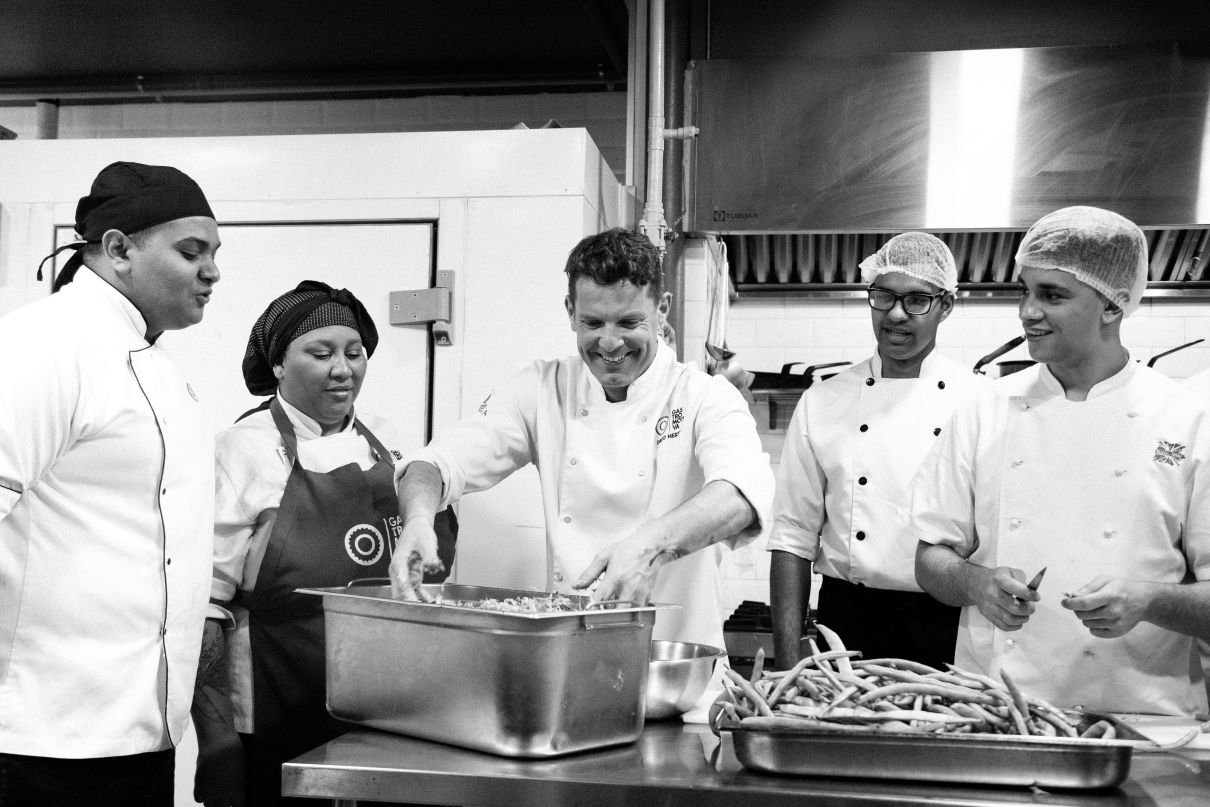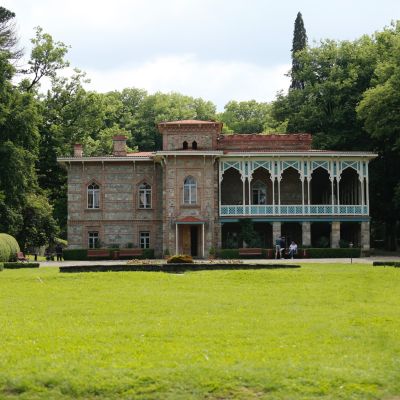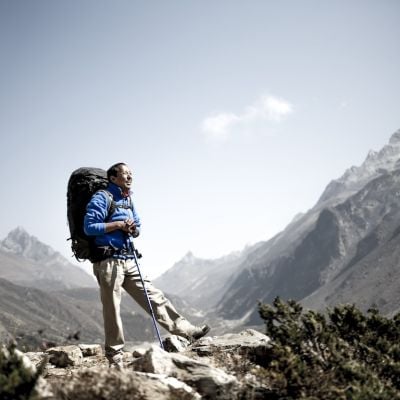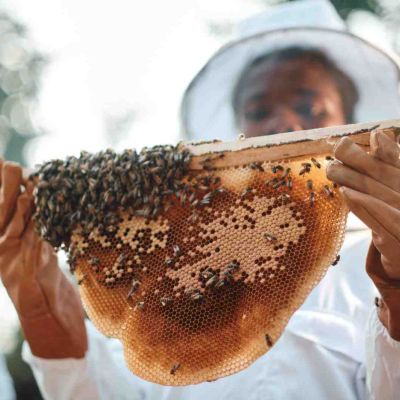Gastromotiva: Empowering Through Food

David Hertz’s social enterprise uses food to empower those on the fringes of society.

When David Hertz was in his late teens and early 20s he travelled all over the world. But the experience that stayed with him was the hopelessness of the slums, from India to Israel. When he returned home to Brazil in the mid-1990s and started work as a cook, he regarded the favelas with fresh eyes. “In Brazil, we have a very narrow mindset of inequality; giving is not a practice and people ignore what happens next door to them,” he says in a phone interview from Rio de Janiero.
The São Paulo favelas were immersed in poverty, violence, and drug dealing but also full of talented individuals who were driven but lacking opportunities. “They had a passion for food and a desire to work as cooks, but they were trying to get by on US$300 a month as a family of four. These were people who had a dream, but didn’t know how to achieve it.” He felt compelled to address the status quo.
“I always say that life prepared me for that moment,” says Hertz, now aged 44. “Suddenly I saw why I had travelled all over the world, why I had become a chef. Now I could share all this knowledge and experience, and empower others.”
His first foray was to set up a social catering business inside the Jaguaré favela, teaching residents to cook and subsequently train others through a peer-to-peer network. It became the foundations of his social enterprise Gastromotiva, set up in 2006 as an organisation that offers free culinary programmes to disadvantaged people. To date, it has provided free training to more than 4,000 young people as kitchen assistants. At the end of each course, restaurant partners come and select the staff they require. Two years after their training, 90 percent are still employed. When their communities see how cooking has changed their lives, it creates a positive ripple effect, says Hertz.
“My first trainee now has a catering business that employs 20 people,” Hertz says. He recalls Renan Rocha, a boy from Rio. “His dream was to work with food, but he had no resources.” He was trained, introduced to top chef Claude Troisgros, and today is sous-chef of the CT Boucherie of the Botanical Garden, an elite steak restaurant in Rio.
As well as the young and unemployed, Gastromotiva has trained prison inmates and jobless immigrants arriving from other places such as Peru and Bolivia. Through peer-to-peer workshops held in the favelas, Hertz reckons another 30,000 favela residents have been taught how to cook. “We believe cooking is the fastest, strongest and most effective way to transform people. We are teaching mothers how to wisely feed their children.”
According to the World Economic Forum, the food and beverage industry accounts for 10 percent of global GDP and jobs. Gastromotiva’s rapid success, Hertz explains, was a simple case of doing the maths. “In São Paulo, there are 44,000 formal food establishments such as restaurants, pizzerias, churrascarias, employing 800,000 people. And the main complaint of all the restaurant owners and chefs is how we get trained people. Therefore, there is a very relevant market that can offer solutions of formal employment, but there is a need of accessible training.”
Hertz’s movement gained fame as he was recognised as an Ashoka Fellow, later gaining a TED fellowship and nomination as a Young Global Leader by the World Economic Forum. Soon, top chefs, such as Brazil’s Alex Atala, were travelling to the favelas to mentor Hertz’s recruits. “It proved to me the impact of our world was being noticed on an international level.”
He realised there was an opportunity to expand Gastromotiva beyond Brazil. “When you value the food chain, buying local ingredients, you preserve traditions, you develop culinary skills and attract tourists. It works anywhere.”
Now it has expanded to Mexico, Argentina and South Africa and has received funding from large corporates such as UBS, JP Morgan, Cargill, Coca-Cola, Carrefour and Stella Artois. Gastromotiva is no longer a social enterprise but a movement on the global stage, says Hertz, building a network of chefs and partners, including Jamie Oliver, Daniel Humm and René Redzepi. They are looking for more investors and resources to expand and replicate their programmes all over the world.

Last year at the World Economic Forum in Davos, Switzerland, Gastromotiva prepared a series of lunches called Taste Without Waste. In the middle of the snow, the team built a fire pit under the open skies and cooked delicious dishes for Davos attendees, using leftover ingredients from the food markets in Zurich. It was a magical moment, says Hertz.
“People would stop and slow down, have a meal and a chat. Over the warm fire, the world’s most powerful people would meet students from dangerous favelas, share thrown-away food and listen to their stories.”
This article originally appeared in Billionaire's Ideas Issue, March 2018. To subscribe contact









